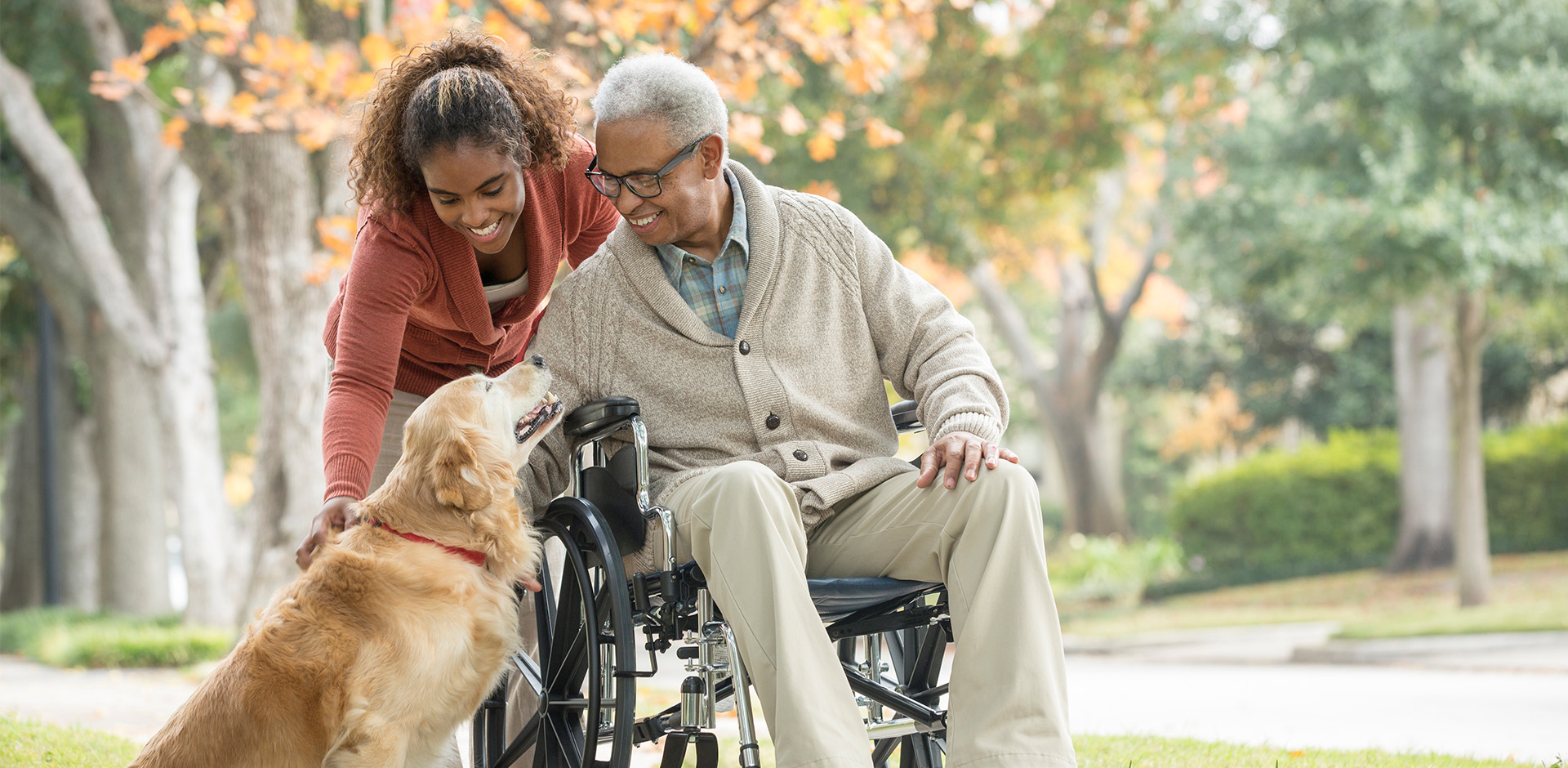5 Tips for Maintaining Good Balance & Preventing Falls
Falling is no laughing matter. Patients with Parkinson’s disease, peripheral neuropathy, lower extremity weakness, sensory loss, and substantial vision loss have a higher risk of falling. Good balance requires reliable sensory input from an individual’s vision, vestibular system (the balance system of the inner ear), and proprioceptors (sensors of position and movement in the feet and legs). Balance is also dependent on good muscle strength and joint mobility. A sedentary lifestyle and arthritis or diseases of the bones and muscles can compromise strength and mobility.
Most people are familiar with the problems associated with the aging of senses such as vision and hearing. However, the vestibular (inner ear) system can also begin to function poorly with age. The vestibular system is a complex structure of fluid-filled tubes and chambers that constitutes part of the inner ear. Specialized nerve endings inside these structures detect the position and movement of the head and also detect the direction of gravity. The signals sent from the nerves of the vestibular system are critically important to the brain’s ability to control balance in standing and walking, and to control certain types of reflexive eye movements that make it possible to see clearly while walking or running.
Because balance is a complex function, there may be no single identifiable cause of a fall. Symptoms of dizziness and/or vertigo can have a variety of causes: vestibular disorders (inner ear), central nervous system disorders (such as stroke), cardiac problems (including low or high blood pressure), low blood sugar, medication side effects or interactions between drugs, or an inadequate or poorly balanced diet. A thorough evaluation by a physician is usually necessary to help sort out possible causes of a fall. The trouble in any one system may not be severe, but the combined effects may cause a serious problem with balance.
The good news is that there are things you can do to reduce the risk of falls:
- Consult your doctor. When a person falls two or more times within a year or has an injury caused by a fall, they probably need an evaluation by a doctor.
- Maintain good vision. Vision problems can increase the risk of falling. Make sure your prescriptions for glasses and contacts are up-to-date and schedule an annual eye check-up.
- Exercise regularly. Play golf, walk, or go dancing-do whatever you can to stay fit. Exercise can help people maintain their balance and strength, especially for those with neurological conditions. At the 2014 American Stroke Association conference researchers reported that tai chi reduced falls among stroke survivors. A tai chi course modified for people with balance problems is a good option. The YMCA often offers these modified classes. The National Association of Area Agencies on Aging can help you identify programs near you. Also, a physical therapist can help you develop an exercise plan. Exercising safely, with good form and under professional supervision, is important.
- Take stock of your medications. Certain medications can cause dizziness or drowsiness and can affect balance. Make sure your pharmacist, primary care provider, and other specialists have a complete list of all your medicines, including over-the-counter medicines and supplements. Ask them to identify medications that may cause drowsiness and dizziness, and have them recommend the safest options for you.
- Do a home assessment. Ask your doctor to recommend a physical or occupational therapist to evaluate your home for falling risks. A professional can help ensure grab bars are properly placed and at the right height, floors have the right kind of non-skid surface, lighting is appropriate and well-placed, and doorways are wide enough.
Being proactive instead of reactive can reduce significant physical, emotional, and financial costs, but sometimes people are reluctant to follow advice or make changes. Hearing advice from more than one person can help. So, too, does framing the message in a positive way. For example, if you are told you must use a cane or walker, consider a friendlier message: A cane or walker isn’t a defeat-the larger defeat is not using it. Remember you’re not giving up. You’re being smarter about staying safe.
Source: Stephanie Stephens; Neurology Now







